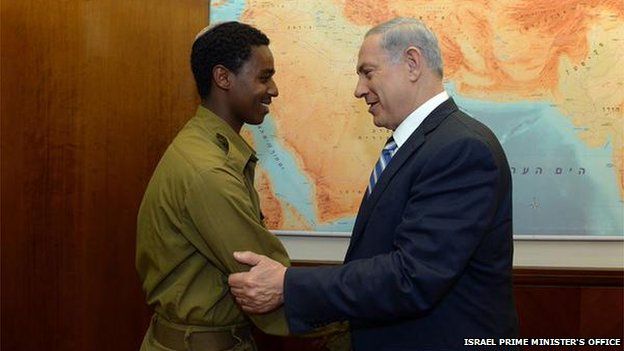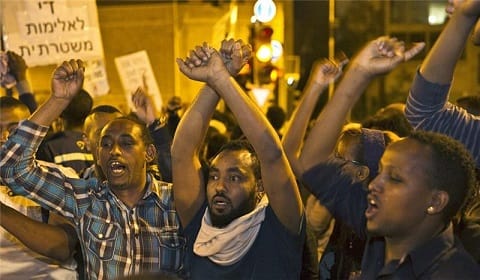Brandon Hill
 Nationality: African-American
Nationality: African-American
Current position(s): Student Body Vice President of Stanford University, Co-Founder of Enza Academy
Education: Honors Senior at Stanford University, Exchange Fellow Morehouse College
Topic of Interest: Pan-African Education, Empowerment, and Elevation
Brandon Hill is a budding public servant, educator, adventurer, entrepreneur, and filmmaker. At 21, Brandon set sail with Semester at Sea in spring 2012 during his gap year, enabling him to travel to over 12 countries around the world. A former White House intern and a current sophomore at Stanford University, Brandon dreams of a empowering communities across the globe through education, public policy, and the magic of sharing stories.
Brandon is also the Co-founder of Enza Academy, a youth leadership and entrepreneurship incubator in urban communities. Using a culturally-relevant and project-based curriculum, EA is equipping underrepresented students with the tools of design-thinking, coding, and entrepreneurship to empower themselves and their communities through innovation. It’s pipeline teaches children to discover a community problem, design a solution, and develop a plan of action.

Branding recently made history at Stanford University when he was elected Vice President of the student body government.
F2FA: What makes you proud to be an African?
BH: I am proud to know that I am the son of an ancestry that is responsible for the world’s most important innovations: religion, mathematics, astronomy, architecture, storytelling, and civilization itself. To be African is to be made of the stuff of creativity and resilience and generosity. My people have given so much richness to the world, and it is often not recognized or appreciated. But we children of Africa have an obligation to take pride in and spread the gospel of the beloved Motherland.
F2FA: What inspired you to go in to your field?
BH: Growing up in Minnesota, my education exposed me very little to narratives of Black people building things. The euro-centric history I was fed always painted Blacks as the hapless losers of a global system for which we were naturally unfit to succeed. I am interested in the nexus of education, innovation, and policy to not only prove that Afrikans can create their own future, but indeed because self-sufficiency and self-determination is the key to our collective destiny.
F2FA: What do you see as the way forward for Africa to fulfill its potential?
There is power in pride. We need to recognize that Africa already has everything it needs to be an empire. We have the people, we have the resources, and we have the ideas. We do not need aid from Europe. We do not need volunteers from America. We do not need multinational corporations to expose the jewels beneath our feet. We do not need international NGOs to expose the jewels within our minds. We need to belief in Africa–for Africans, by Africans. We have been duped into believing that our potential is dependent on how much other powers believe in us. We must recall that a decade ago, the Economist magazine called Africa the “Dark Continent”. A decade later, its cover sang, The Rise of Africa. Others might doubt us or invest in us depending on the season. But we must never forget the wealth that we posses and the first step to greatness is knowing that it is possible. We are possible.
F2FA: How important is home grown innovation to reaching this end?
BH: No one will understand the challenges that we face like we do. Historically, foreign powers and corporations have come to Africa to offer us their ideas. Typically, such stories end in exploitation. We need to be in the business of building solutions that benefit Africa. It is beyond time for us to benefit from our own empowerment. Our ideas will be richer, our impact will be greater, and our future will be brighter.
F2FA: With Africa soon having the largest youth population in the world, what can governments and communities across the continent do to properly engage and stimulate the youth and effectively harness their power, energy, and creativity?
BH: I believe that all youth are born with limitless creative potential. We need governments and civil society to foster youth engagement and active citizenship to activate and maximize the potential. We need youth to first and foremost get world-class Afro-centric educations that both emphasize skills that will be relevant in the 21st century—like code, math, physics—as well as critical consciousness about the socio-political and economic forces that have resulted in Africa’s current position. We also need programs that foster youth innovation, which will positively impact employment.
F2FA: What advice would you give to young people about finding their life’s purpose and path?
BH: I would give two pieces of advice to a young person. When you are a kid, you want to fit in with the crowd. So, one, do not be afraid to stand out. Because, as Dr. Suess said, you have to be odd to be number one.
Second, remember that people our age are still figuring things out themselves. So be your own leader, because the people who you think are setting the trend are probably more lost than you are.
F2FA: What are you looking to accomplish that you haven’t accomplished yet?
BH: I hope to attend Harvard to attain a dual JD/MBA. I want to scale Enza Academy into a global force in education. And eventually I want to help unify the Pan-African Community.
Get Tickets for The Pan-African Weekend Here









